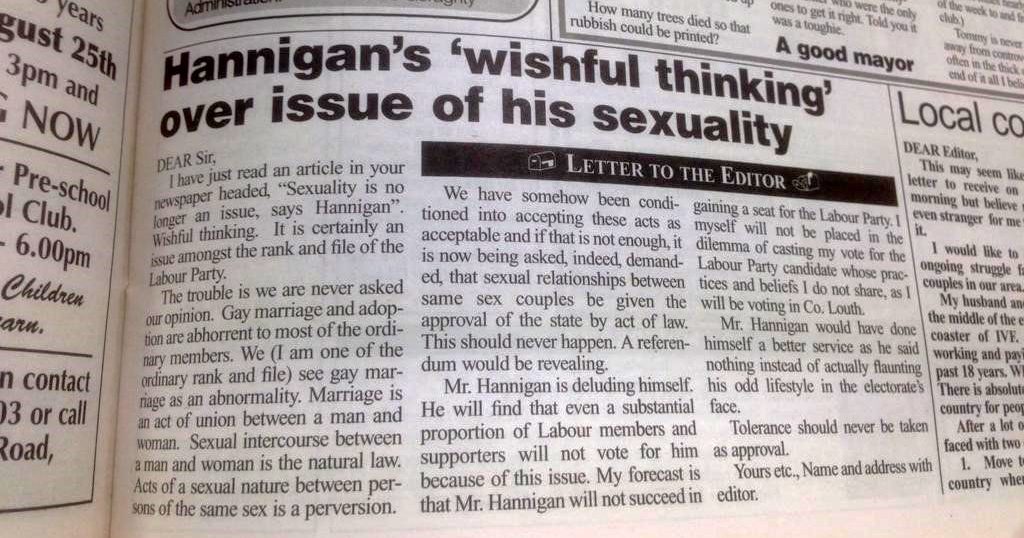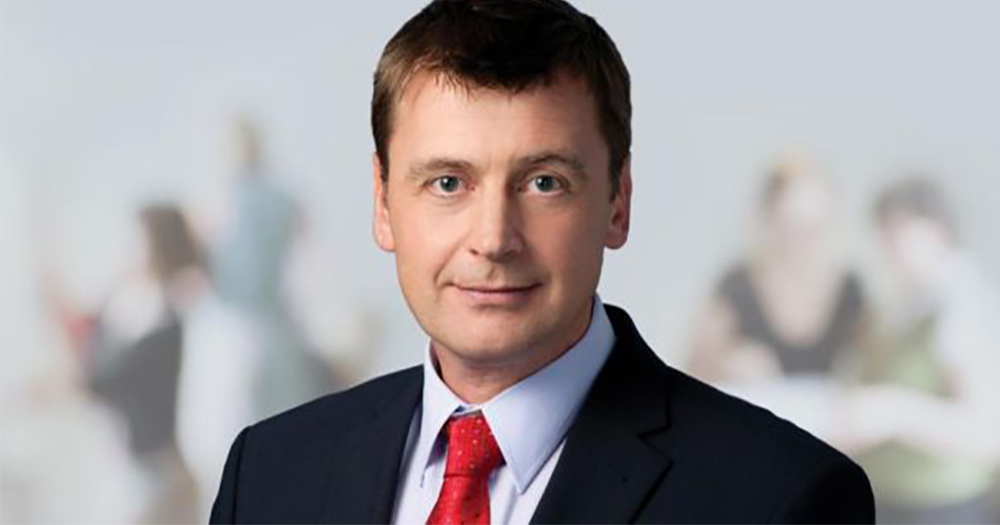For the past few weeks, I’ve been travelling around the towns and villages of the Midlands and the north west of Ireland, canvassing for the European elections. One of the most significant things I’ve noticed on my travels is the diversity of candidates running in the local elections. There are more women, in particular young women, mobilised by their involvement in the campaign to repeal the eighth amendment and more people from migrant backgrounds. For these young, new candidates, they have no need to declare their sexuality on the doorsteps – it just simply isn’t an issue.
For me, this is a world apart from when I started out canvassing as a young local election candidate in Meath. And while I may seem old but I’m not that old! This was in the early 2000s, just 15 years ago.
My involvement in politics started in 2004 when I returned from a career in the transport, health and communications sectors in London. I was elected to Meath County Council that year, and two years later, I came out publicly at Dublin Pride.
After I came out, my sexuality made the news, particularly the local media in Meath and Louth. A nasty letter to the editor was sent to the ‘Drogheda Leader’ – and published – which called my sexuality ‘a perversion’, and gay marriage ‘an abnormality’. The author (needless to say, he/she left their name and address with the editor) claimed that ‘gay marriage and adoption was abhorrent to most of the ordinary members (of Labour)’.
This letter stirred up debate and subsequently there were a number of other letters published, thankfully expressing their support for me and disbelief that the letter was published in the first place.
I have been lucky in that up to that point, my sexuality hadn’t been an issue on the campaign trail, but it was a shock to have something so personal to me up for public debate in my local newspaper.
In 2007, I became a Senator and was then elected to the Dáil in 2011 as one of the first two openly gay TDs, along with John Lyons. This was a hugely proud moment for me, and I am prouder still to have actively campaigned on the successful Marriage Equality referendum as a TD.
For the past seven years, I’ve sat on the board of BeLonG To, which works to support young LGBT+ people, listening to the issues they face and providing support services.

And while Ireland has come a huge way in promoting LGBT+ rights and creating a more fair and just society, there is still a long way to go.
Just this week, Rainbow Europe published a report on LGBT+ people’s human rights in Europe. Of the 49 countries, Ireland came 17th. Post-marriage equality, we like to think we are international leaders in affording full and equal rights to all people, no matter what their sexual orientation. But this is clearly not the case.
Ireland was given an overall score of 47 per cent in achieving LGBT+ rights, placing us behind Portugal (66 per cent); the United Kingdom (65 per cent); France (63 per cent); and Spain (60 per cent), amongst others.
While we have made massive strides with marriage equality and legal gender recognition, we cannot afford to sit back and become complacent.
Areas the report highlighted as needing significant improvement includes services provided to transgender people; tackling hate crime and speech; discrimination; and supports for LGBT+ asylum seekers.
The report also specifically references the need for Ireland to update our existing legal framework for legal gender recognition in accordance with the Gender Recognition Act 2015 review report. As a Member of the European Parliament, this will be a key priority for me, as well as focusing on tackling hate crimes, combatting discrimination, and improving the mental and sexual health of LGBT+ people.
Achieving Marriage Equality was a massive step forward for Ireland, but it is clear there is still much work to be done to achieve full equality for the LGBT+ community. Despite this, however, I’m delighted that we have progressed to live in a society where the sexual orientation of election candidates is no longer up for discussion.
© 2019 GCN (Gay Community News). All rights reserved.
Support GCN
GCN is a free, vital resource for Ireland’s LGBTQ+ community since 1988.
GCN is a trading name of National LGBT Federation CLG, a registered charity - Charity Number: 20034580.
GCN relies on the generous support of the community and allies to sustain the crucial work that we do. Producing GCN is costly, and, in an industry which has been hugely impacted by rising costs, we need your support to help sustain and grow this vital resource.
Supporting GCN for as little as €1.99 per month will help us continue our work as Ireland’s free, independent LGBTQ+ media.
